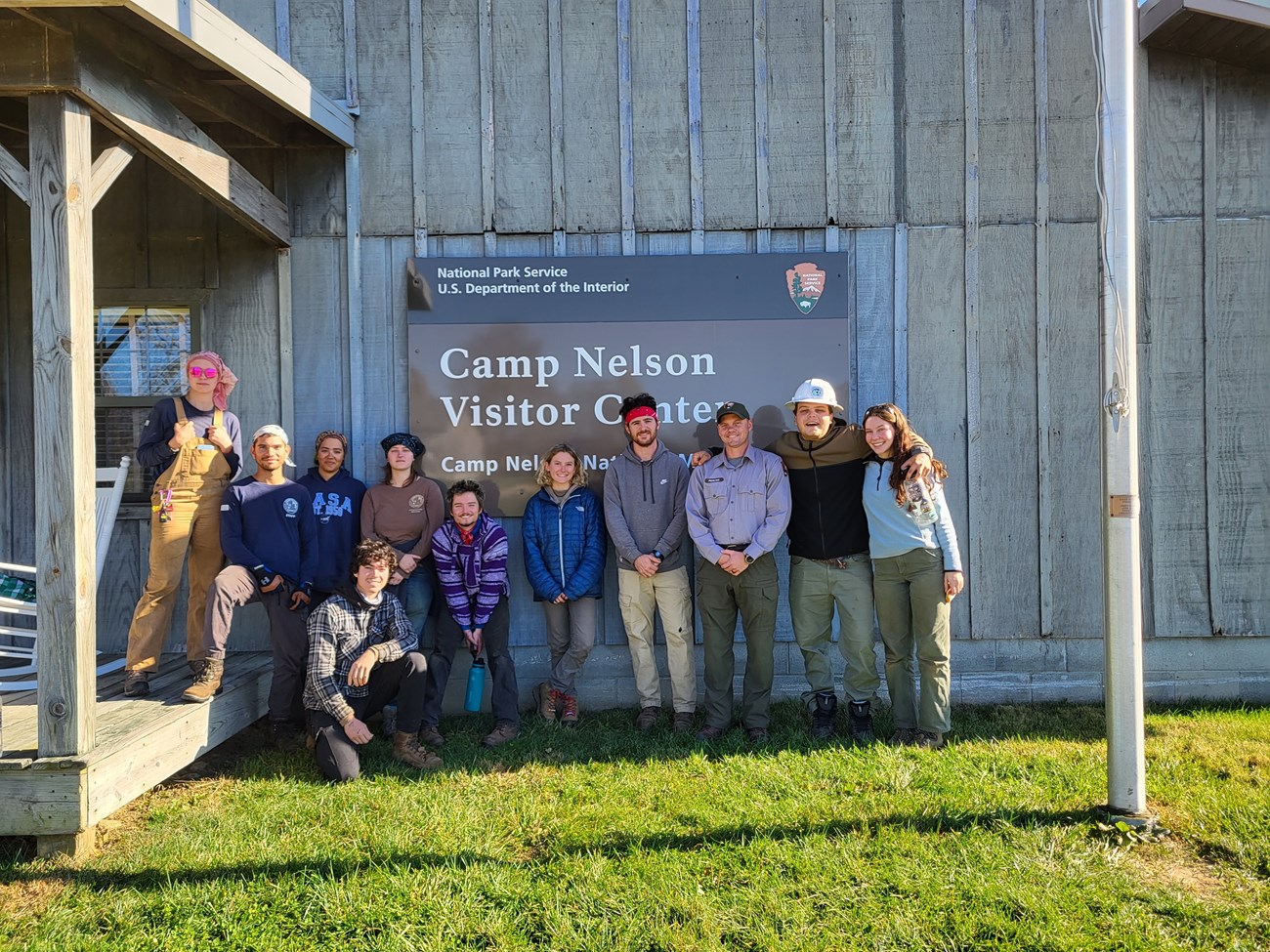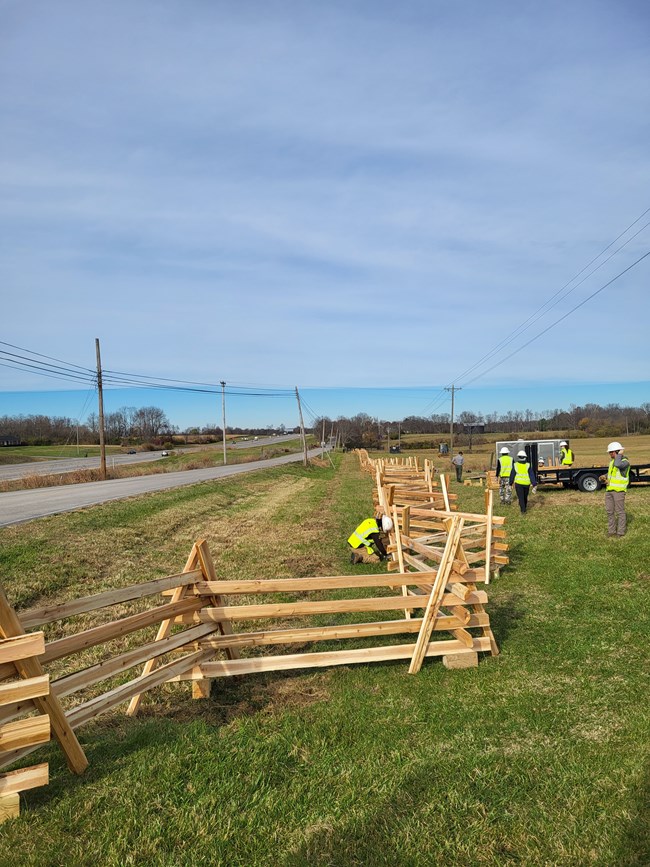Last updated: February 8, 2024
Article
Historic Preservation Project at Camp Nelson National Monument Delivers Practical and Meaningful Experience

Photo Courtesy of American Conservation Experience
Sarah is originally from the west-central Illinois town of Macomb. As she was growing up, historic sites like Camp Nelson National Monument were where she would go for field trips, so it was nice to be able to give back in this way and know that others could experience something similar.
Prior to this project, Sarah worked in a very busy area, so transitioning into a quieter environment where visitors can imagine the history and soak it up was a nice experience. Sarah has been involved in fence work projects as a corps member and this project gave her the opportunity to lead one. She was able to draw from her previous experience and pour that knowledge into the scope of work ensuring the team could completed the work in a safe manner and that they paid particular attention to detail to document in an accurate way for proper record keeping.
How was your project experience?
How does it feel to be part of a project focused on preserving historical sites like Abraham Lincoln Birthplace and Camp Nelson?
I really love working on historical preservation projects not only to reconstruct and be able to share a story, but to also engage with the local communities with whom we are able to share the importance of historic preservation and how our work captures the continued legacy of people who came before us and shaped how we live today.
What specific tasks or responsibilities do you have within the project?
Our crew was working on reconstructing the front fence line, which is one of the first things park guests see when visiting Camp Nelson National Monument, so we had a lot of motivation to pay special attention to all the details.
How did you learn and grow?

Photo Courtesy of American Conservation Experience
In what ways has your involvement in this project contributed to your personal or professional growth?
The folks who supported our crew in the park and the crew themselves were really what made this project so memorable. The kindness and support we received from the park staff demonstrated how much these employees care about the visitor experience. That allowed me to gain a new appreciation for park visitors and the work we did.
Can you share any skills or insights you've gained during this experience?
Two specific areas of improvement for me are getting more familiar with using power equipment and improving my communication skills. One lesson I learned was that our team included strong individuals, and as a team leader, it’s important to balance recognizing individual contributions to the reconstruction just as much as those whose story we are telling. I was reminded to take the time to interact with everyone and make sure they felt heard, supported, and appreciated.
What was the impact on the community?

Photo Courtesy of American Conservation Experience
How do you think the restoration of these sites will positively affect the local community or visitors?
I had the opportunity to interact with a few community members while working on this project. The people we interacted with were both visitor and local to the area, so for our team to hear firsthand what our work meant to those individuals and the community helped push the group to put just a little bit more effort into our work and make things that much more meaningful.
In your opinion, what is the broader significance of preserving historical landmarks?
Historical sites like Camp Nelson National Monument are incredible. The time, effort, and curation that go into collecting records and artifacts to tell the stories of the people who lived and died here is what helps us know how we got to where we are today. Places like this help us remember the people we’ve lost that might otherwise be forgotten and their stories are part of a much bigger picture that deserves to be told so that we can strive to be better today.
Follow along with us as we share new stories about youth-specific MAT projects in this article series. Have a question about Youth or Young Adult Programs? Please e-mail us. Learn more about what we do. Be sure to follow us on Facebook, Twitter, and Instagram.
